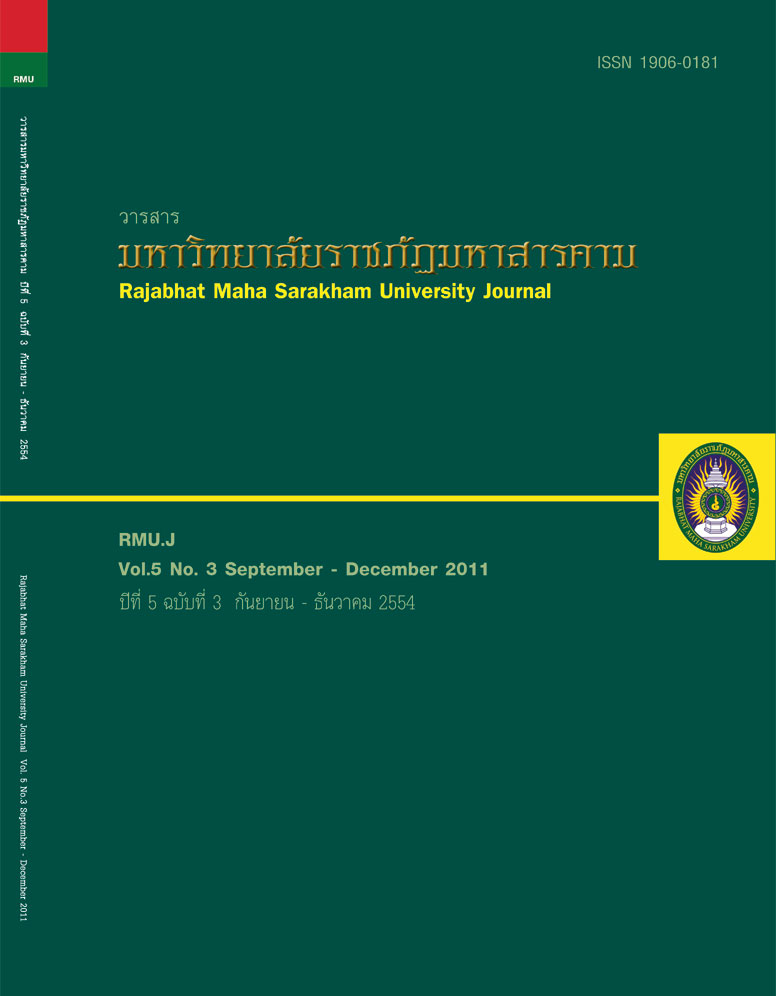ปฏิบัติการอารยะขัดขืน; Civil Disobedience Action
Main Article Content
บทคัดย่อ
ปฏิบัติการอารยะขัดขืนถือว่าเป็นยุทธวิธีการเคลื่อนไหวรูปแบบหนึ่งของขบวนการทางสังคมที่ถูกนำมาใช้เพื่อให้การเคลื่อนไหว
ต่อสู้ของขบวนการได้บรรลุตามเป้าหมาย อันเป็นยุทธวิธีมีลักษณะของการเข้าขัดขวางท้าทายระบบสังคมการเมืองปกติ ในรูปแบบที่ผิด
กฎหมาย แต่ดำเนินการภายใต้วงขอบสันติวิธี อย่างเปิดเผยต่อสาธารณะ และผู้กระทำการยอมรับโทษตามกฎหมาย ด้วยลักษณะของ
ปฏิบัติการดังกล่าวได้ส่งผลต่อความชอบธรรม ความแหลมคม และความท้าทายของปฏิบัติการ หากขบวนการทางสังคมได้นำปฏิบัติ
การอารยะขัดขืนมาใช้อย่างครบองค์ประกอบสำคัญที่ว่านี้แล้ว มีแนวโน้มว่าปฏิบัติการจะสามารถนำพาขบวนการไปสู่ความสำเร็จได้ตาม
จุดมุ่งหมาย อีกทั้งยังสามารถสร้างความชอบธรรมให้กับปฏิบัติการในลักษณะนี้ได้อีกด้วย สำหรับปฏิบัติการอารยะขัดขืนของชาวบ้าน
กลุ่มสมัชชาคนจนกรณีเขื่อนราษีไศลที่ยกมาเป็นตัวอย่างประกอบนั้นจะพบว่า ปฏิบัติการอารยะขัดขืนของชาวบ้านถือว่ามีองค์ประกอบ
ครบตามหลักการ และได้สร้างพลังท้าทายจนสามารถกดดันให้รัฐบาลยอมตามข้อเรียกร้องได้ แต่ด้วยลักษณะการยอมรับโทษแบบมี
เงื่อนไขของชาวบ้านเองกลับส่งผลให้ปฏิบัติการของพวกเขายังเป็นที่กังขาในเรื่องความชอบธรรมอยู่ โดยปัญหาที่ว่านี้ใช่ว่าจะเกิดเฉพาะ
กับกรณีเขื่อนราษีไศลเท่านั้น หากแต่เป็นปัญหาที่พบเห็นได้ทั่วไปในสังคมไทยปัจจุบัน;
This civil disobedience action is regarded as a tactic of social movement used to struggle and achieve
targets. Such method is disruptive tactic which challenges normal social and political system as well as it also
breaks the law. Nevertheless, it is operated peacefully in public and the actor accepts legal punishment. The
characteristic of this operation affects its legitimacy, penetration and challenge. If the civil disobedience is
completely applied as a tool of the social movement, it would be possible that the operation will be successful
to accomplish the goal and build the legitimacy for this kind of operation. The civil disobedience action
in case of the Assembly of the Poor at Rasisalai Dam represented that the civil disobedience action of the
villagers included complete all elements based on principle. It also caused challenging power to force the
government to agree with their claims. However, the villager’s acceptance of conditional punishment was
doubted in aspect of legitimacy because this kind of problem did not only happen at Rasisalai Dam, but also
was generally found in present Thai society.
Article Details
1. บทความที่ลงตีพิมพ์ทุกเรื่องได้รับการตรวจทางวิชาการโดยผู้ประเมินอิสระ ผู้ทรงคุณวุฒิ (Peer Review) สาขาที่เกี่ยวข้อง อย่างน้อย 3 ท่าน ในรูปแบบ Double blind review
2. ข้อคิดเห็นใด ๆ ของบทความที่ลงตีพิมพ์ในวารสารมหาวิทยาลัยราชภัฏมหาสารคาม นี้เป็นของผู้เขียน คณะผู้จัดทำวารสารไม่จำเป็นต้องเห็นด้วย
3. กองบรรณาธิการวารสารมหาวิทยาลัยราชภัฏมหาสารคาม ไม่สงวนสิทธิ์การคัดลอกแต่ให้อ้างอิงแสดงที่มา


